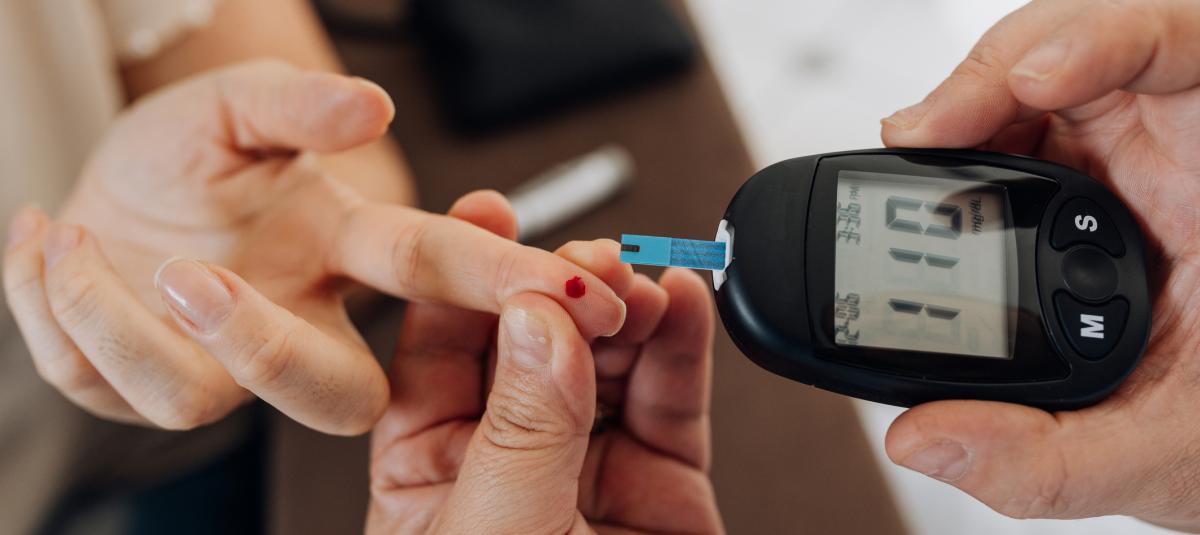Up to 40% of people with type 2 diabetes will develop chronic kidney disease. How can it be prevented?

Kidney complications are increasingly common in patients diagnosed with diabetes. It is estimated that up to 40% of people with type 2 diabetes will develop chronic kidney disease (CKD), a disease that progresses silently and is often detected only when kidney damage is severe.
Therefore, on National Organ and Tissue Donor Day, celebrated annually on May 30, it is essential to recognize the importance of prevention, diagnosis, and timely treatment to avoid progression to kidney failure and the need for a transplant, and, consequently, contribute to ensuring that more people on the waiting list can receive the organ they so desperately need.
In Colombia, more than one million people live with chronic kidney disease (CKD), which occurs when the kidneys are damaged and can no longer filter toxins from the blood or properly regulate the body's water and electrolyte balance. In advanced stages, treatments such as dialysis or kidney transplantation are required to stay alive.
Due to its epidemic nature and high morbidity and mortality, CKD is a global public health problem. In the country, this disease has increased by 25% between 2022 and 2023, representing a reduction in patient well-being and an increase in costs for the healthcare system. In this sense, it is essential that those with risk factors, such as patients with diabetes, take preventive measures to avoid the progression to CKD.
“Diabetic patients should be aware of their high risk of developing chronic kidney disease. Symptoms cannot be normalized or warning signs minimized. It is essential to see a doctor if any changes occur. Preventing kidney deterioration not only improves quality of life, it can also prevent progression to dialysis, transplant, or even death,” said Jorge García, founder and director of the Retorno Vital Foundation.
Diabetes as a precursor to CKD When blood sugar levels are not well controlled, the small blood vessels in the kidney can be damaged, affecting their filtration capacity, regulation of body balance, waste elimination, and other functions. A study conducted by Ipsos, Bayer, and the Latin American Society of Nephrology and Hypertension (SLANH) in Colombia, Brazil, Mexico, and Argentina showed that impaired kidney function is present in 30% to 50% of patients with type 2 diabetes.

Exercise and a healthy lifestyle help prevent diseases like CKD. Photo: iStock
In the early stages of CKD, there may be no obvious symptoms, but as the damage progresses, signs such as persistent fatigue, constant vomiting, loss of appetite, weight gain, cramps, swelling in the feet and ankles, or changes in urine output appear, all of which should prompt medical attention.
According to Silvia Rey, senior medical advisor for cardiorenal issues at Bayer: “80% of patients with chronic kidney disease are not diagnosed in their early stages, limiting their access to timely treatment. Furthermore, it is estimated that only 10% of people with kidney problems receive treatment, which is linked to the absence of obvious symptoms, a lack of awareness about the importance of self-care, and a lack of comprehensive and coordinated care across different medical specialties to effectively address complications and prevent their progression.”
Early detection of CKD in diabetic patients can make the difference between maintaining their quality of life or facing serious complications. When this condition is detected early, the risk of progression to the most advanced stage of the disease can be reduced by up to 50%.

Type 2 diabetes is the most common type of diabetes. Photo: iStock
It is essential for patients with diabetes to take an active role in their health care to avoid kidney complications. Key strategies include:
- Recognize the risk of developing CKD as part of the diabetic condition.
- Maintain a healthy weight.
- Monitor and control blood glucose levels constantly.
- Maintain a balanced diet, low in sodium and refined sugars, that includes fruits, vegetables, proteins, and healthy fats. Also, limit the amount of carbohydrates (rice, potatoes, cassava, plantains, bread, etc.) you consume. All of this should be done with the guidance of a nutritionist.
- Eliminate alcohol and tobacco consumption.
- Perform regular physical activity, tailored to each patient's condition and with professional advice.
- Visit your doctor monthly for diabetes monitoring and request kidney tests at least once a year.

80% of people with chronic kidney disease are not diagnosed in their early stages. Photo: iStock
On National Organ and Tissue Donor Day, the call is clear: beyond the solidarity that organ donation represents, it is urgent to assume self-care and prevention as a daily responsibility. For patients with diabetes, this means closely monitoring their kidney health, adopting habits that allow them to live well, and reducing the risk of progression to advanced chronic kidney disease.
Environment and Health Journalist
eltiempo



%3Aformat(jpg)%3Aquality(99)%3Awatermark(f.elconfidencial.com%2Ffile%2Fa73%2Ff85%2Fd17%2Fa73f85d17f0b2300eddff0d114d4ab10.png%2C0%2C275%2C1)%2Ff.elconfidencial.com%2Foriginal%2Fc53%2Fef8%2F756%2Fc53ef8756c40bc3e3317dcd55165026f.jpg&w=3840&q=100)

